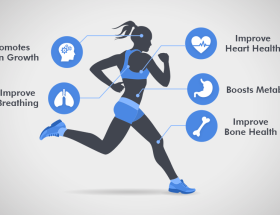When it comes to nutrition, understanding the importance of macronutrients and micronutrients is essential for maintaining a healthy and balanced diet. Both play a crucial role in supporting overall health and well-being. In this article, we will delve into the basics of macronutrients and micronutrients, their functions, and the best food sources to get them from.
Macronutrients
Macronutrients are nutrients that our bodies need in large quantities to provide energy and support various bodily functions. These nutrients include carbohydrates, proteins, and fats.
Carbohydrates
Carbohydrates are the primary source of energy in our diet. They are broken down into glucose, which is then used by our cells for energy production. There are two types of carbohydrates: simple carbohydrates and complex carbohydrates. Simple carbohydrates, like sugars found in fruits, are digested quickly, providing a quick energy boost. Complex carbohydrates, like whole grains and legumes, are digested more slowly, providing sustained energy throughout the day.
Html code: <img src=”carbohydrates.jpg” alt=”Carbohydrates”>
Proteins
Proteins are the building blocks of our body. They are essential for the growth, repair, and maintenance of body tissues. Proteins are made up of amino acids, of which there are twenty. Our bodies can produce some amino acids, but there are nine essential amino acids that we must obtain from our diet. Good sources of protein include lean meats, poultry, fish, eggs, dairy products, legumes, and nuts.
Html code: <img src=”proteins.jpg” alt=”Proteins”>
Fats
Fats are another important macronutrient that provides energy to the body. They are necessary for the absorption of fat-soluble vitamins and support brain function, hormone production, and insulation of body organs. There are different types of fats: saturated fats, unsaturated fats, and trans fats. Saturated fats, found in animal products, should be consumed in moderation, while unsaturated fats, found in avocados, nuts, and olive oil, are considered heart-healthy fats.
Html code: <img src=”fats.jpg” alt=”Fats”>
Micronutrients
Micronutrients, as the name suggests, are nutrients that our bodies need in smaller quantities but are equally critical for proper functioning. They include vitamins and minerals.
Vitamins
Vitamins are organic compounds that are necessary for various bodily functions, such as energy production, immune system support, and regulation of metabolism. There are thirteen essential vitamins, each having a unique role in our health. Vitamin C, found in citrus fruits, helps boost the immune system, while vitamin D, obtained from sunlight and fortified foods, is crucial for bone health.
Html code: <img src=”vitamins.jpg” alt=”Vitamins”>
Minerals
Minerals are inorganic substances required by the body for proper functioning. They play a role in maintaining electrolyte balance, red blood cell production, and bone health. Common minerals include calcium, iron, magnesium, and zinc. Calcium, found in dairy products, is vital for strong bones and teeth, while iron, obtained from sources like lean meat and beans, is necessary for oxygen transport in the blood.
Html code: <img src=”minerals.jpg” alt=”Minerals”>
Conclusion
Understanding the difference between macronutrients and micronutrients is crucial for maintaining a well-balanced diet. Both play essential roles in supporting bodily functions and overall health. Remember to include a variety of food sources to ensure you are getting an adequate intake of macronutrients, such as carbohydrates, proteins, and fats, as well as micronutrients, including vitamins and minerals. A healthy diet, rich in a wide range of nutrients, is the key to optimal nutrition and well-being.









